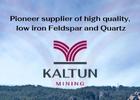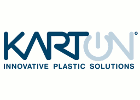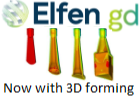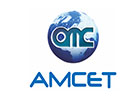The crucial role of raw materials in the glassmaking process was investigated at a conference last week.
The Society of Glass Technology’s (SGT) annual conference was titled Sand to Splendour and incorporated sessions on raw materials in industry, science and history. A total of 120 people registered to attend the event, held at Murray Edwards College in Cambridge, UK.
The majority were from the UK but visitors also came from The Netherlands, Germany, Turkey, Poland and the USA. Opening the two-day raw materials conference, organiser Alan Reynolds said there was so much pressure on the industry yet also optimism.
“I can’t remember when the industry was under so much pressure to justify its existence. "Emissions, particularly CO2 and the impact they have on the planet, are often discussed. If we all had a pound when we had heard that phrase in recent months we would be very rich.
“Yet there is so much optimism in the industry as well. The excitement to look at new and different ways of glassmaking, there are more discussions on recycling now more efficient reccyling, as well as investigating old materials and methods of glassmaking.
“All of these things are being pursued in parallel now and I can’t remember when so much energy was being devoted to making glass and what materials can be used.”
Afterwards Mr Reynolds told Glass International he had suggested the theme because the last conference dedicated to the subject was held in 1979. He said: “I was worried raw materials were being taken for granted by the industry.
“They are an essential starting point of the glassmaking process but I feel it has been a rather neglected area of glassmaking for the past few years.” A total of 17 presenters gave papers at the raw materials session, including speakers from Ardagh, Guardian Glass, Pilkington, Stolzle, Calumite and Sibelco.
The event also included papers focused on glass science and on the history of glass. It also included a banquet where two joint winners of the SGT’s Lucy Oldfield Award were announced. Jessica Rigby, of Sheffield Hallam University, won for her research paper Development of Novel Glass Formulations for Treatment of Post-Operative Clean-Out (POCO) Wastes for Decommissioning of the Sellafield Site.
Francesca Lewns, of the University of Birmingham, was awarded for her work on Electrospun Bio Active Glass Fibres as a Novel Haemostatic Agent.
A review of the event will be published in a forthcoming issue of Glass International.


























